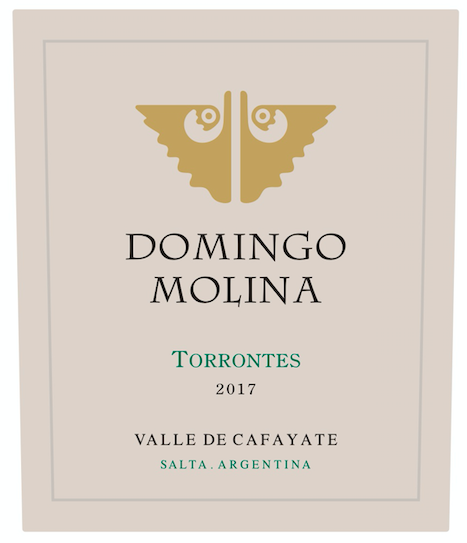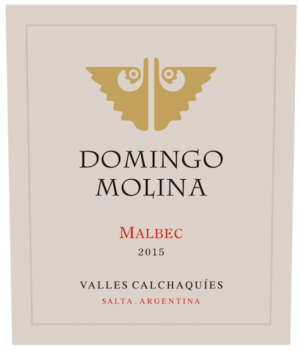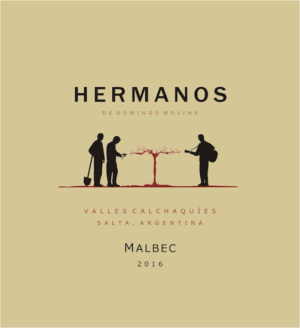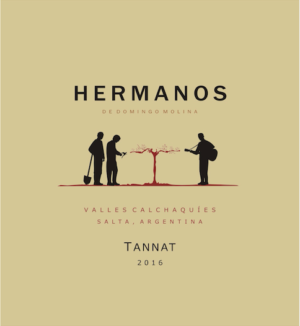
Domingo Molina Torrontés – Cafayate Valley
| Country | Argentina |
|---|---|
| Region | Salta |
| Producer | Domingo Molina |
| Size | 750mL |
| Style | White |
| Practices | Sustainable |
| Grapes | Torrontes |
| Other Features | Vegan, Unfined |
100% Torrontés from 40 year old vines planted on sandy soil in the Cafayate Valley, in the province of Salta, at 5,750 feet above sea level. Green pruning is performed when needed. The grapes are hand-harvested late March. 5% of the wine is fermented in French oak barrels; the rest in stainless steel tanks, at controlled temperature, with selected indigenous yeasts. Skin maceration for 8 hours at 4°C in stainless steel tanks. The malolactic fermentation is prevented for freshness. Unfined, lightly filtered. Pear, white flowers, rose petal, long mineral finish. 14% alcohol. 5.000 bottles are produced.
About the Producer

Domingo is the last name of the founder, Palo, and Molina is the last name of his wife. Their winery is located in the province of Salta, 8 km west of Cafayate, in North Yacochuya. It lies on the Andean mountainside, overlooking the Calchaquí Valleys. Ranging from 1,600 to 2,300 meters above sea level, the vineyards enjoy a special microclimate with more than 300 days of sun, scarce rainfall, and a wide temperature range, all of which allow for excellent grape growing conditions. They spread over 60 hectares: 10 ha in Cafayate Valley, 25 ha in Yacochuya Valley and 25 ha in the Rupestre Valley, a desertic place with no electricity and desertic-alluvial soil. Palo Domingo bought most of the land there. He is the only one to farm in that location, using gravitation to water the vines. Endowed with a solid professional background and a vast experience in viticulture, his children, Osvaldo, Gabriel and Rafael, are now running the estate. They are proud to own some 100+ year old vines, along with younger ones.
Torrontes, Malbec, Cabernet Sauvignon and Tannat are some of the varieties planted, respecting the ecological identity and personality of each terroir. The grapes are hand-harvested, and carefully selected before the destemming and crushing processes. After that, they are sent to small concrete or stainless steel tanks for fermentation and maceration. Each lot is vinified separately.
Practices: sustainable – no use of chemicals in the farming and cellar expect for a specific insecticide needed to fight the ants, that are a major problem. The winery is working to find alternative solutions.

 Osvaldo, Rafael and Gabriel Domingo
Osvaldo, Rafael and Gabriel Domingorelated products
-
Domingo Molina
Domingo Molina Malbec – Calchaquíes Valley
-
Domingo Molina
Hermanos Malbec – Calchaquíes Valley
-
Domingo Molina
Hermanos Tannat – Calchaquíes Valley



